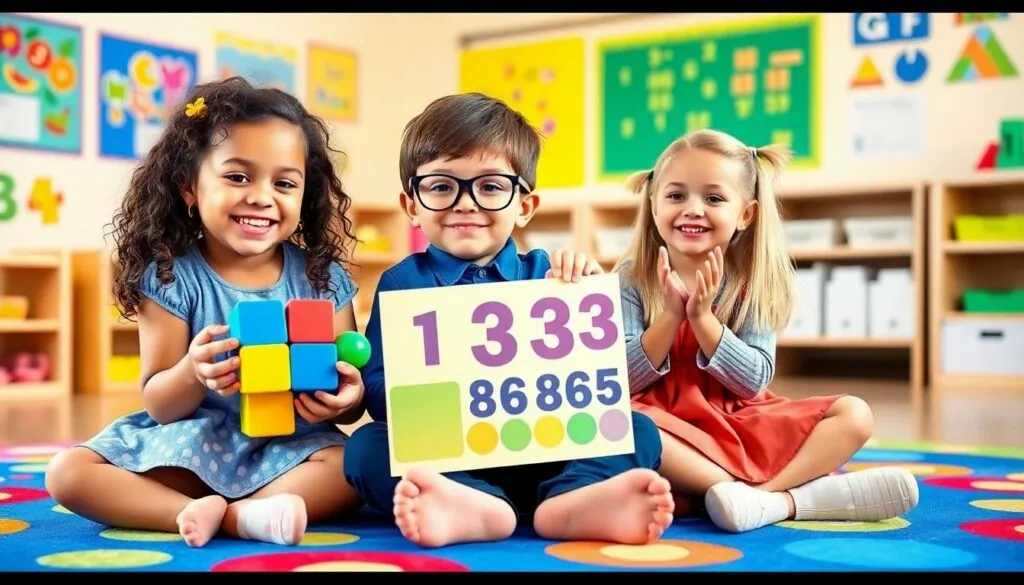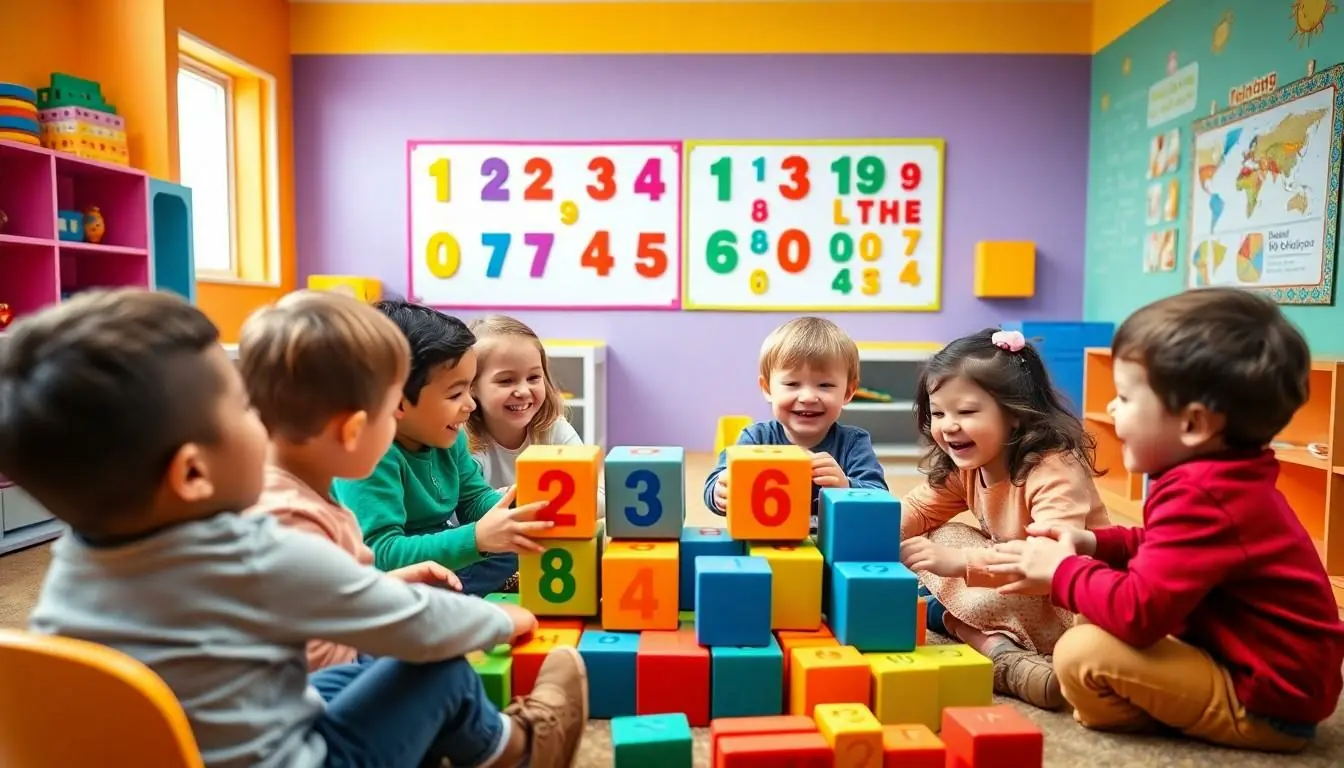Table of Contents
ToggleCounting doesn’t have to be a dull chore for preschoolers. In fact, it can be a riot of fun and laughter! Imagine a world where numbers come alive through games, songs, and silly antics. That’s the magic of counting games designed for little ones. Not only do they make learning enjoyable, but they also help children develop essential math skills without even realizing it.
Benefits of Counting Games for Preschoolers
Counting games provide preschoolers with enjoyable experiences that promote essential skills while learning. These games make the learning process engaging and impactful.
Cognitive Development
Cognitive development in preschoolers benefits significantly from counting games. Numerical recognition improves as children engage in fun activities. Memory retention gets enhanced through repetitive counting, making it easier for kids to recall numbers later. Critical thinking skills also develop as children solve counting challenges, fostering problem-solving abilities. Moreover, they gain an understanding of quantity and comparison, laying a solid foundation for more advanced math concepts.
Social Skills Enhancement
Social skills enhancement occurs naturally when preschoolers play counting games together. Communication skills improve as children describe their actions and share counting experiences. Turn-taking becomes vital, teaching patience and cooperation among peers. Shared excitement promotes bonding, creating friendships through playful competition. Additionally, children learn to celebrate each other’s successes, which reinforces positive social interactions and encourages teamwork.
Popular Counting Games
Counting games for preschoolers combine fun with learning, enhancing important math skills through play. Engaging in various types of counting games supports cognitive and social development.
Classic Counting Games
Classic counting games provide timeless fun, helping preschoolers grasp fundamental numerical concepts. “One, two, buckle my shoe” is a popular activity that encourages counting aloud while participating in a playful rhyme. Another game, “Hide and Seek,” allows children to count while searching for friends, blending movement with numerical learning. Counting objects like toys or snacks enables preschoolers to visualize numbers, reinforcing their understanding. Simple board games like “Chutes and Ladders” incorporate counting as players track movements on the board, making math enjoyable.
Digital Counting Games
Digital counting games captivate children’s attention through interactive features and colorful visuals. Apps such as “Endless Numbers” introduce numbers and counting in an engaging context, making learning feel like play. Websites like ABCmouse offer games that teach counting concepts in a structured yet playful way. Virtual flashcards provide immediate feedback on counting quizzes, aiding in memory retention. Online counting songs combine music with numbers, encouraging preschoolers to sing along while they practice their skills. Engaging with digital formats empowers children to learn at their own pace while enjoying technology.
How to Choose the Right Counting Game
Selecting an appropriate counting game involves considering various factors to enhance preschoolers’ learning experiences. Two key aspects are age appropriateness and engaging features.
Age Appropriateness
Ensuring the game’s difficulty aligns with children’s developmental stages is crucial. For instance, preschoolers aged 3-4 benefit from basic counting activities that introduce numbers one through ten. Games tailored for 5-6-year-olds can incorporate simple addition and subtraction strategies. Observing children’s interests can also guide selection; visually appealing games that invite active participation hold their attention longer. Furthermore, parents can consult reputable resources or reviews to find games that suit their child’s age group effectively.
Engaging Features
Incorporating interactive elements elevates the excitement in counting games. Options like colorful visuals and catchy music can captivate preschoolers and make learning enjoyable. Games that involve movement encourage participation and physical activity, fostering both learning and fun simultaneously. Social interaction features also enhance gameplay; multiplayer modes promote cooperation and communication among peers. Additionally, incorporating storytelling elements can deepen engagement, allowing children to immerse themselves in unique scenarios while practicing counting skills.
Tips for Playing Counting Games with Preschoolers
Engaging preschoolers in counting games requires creativity and interaction. Effectively making these games enjoyable captures their attention and enhances learning.
Making It Fun
Transforming counting into a playful experience captivates young learners. Incorporating songs and rhymes infuses joy while reinforcing numbers. Activities like counting bubbles or clapping hands provide movement opportunities. Using colorful visuals, such as bright toys or art supplies, stimulates interest. Frequent laughter and cheers motivate preschoolers to participate actively.
Encouraging Interaction
Promoting social connections can enhance counting games significantly. Inviting friends to join fosters teamwork and cooperation. Taking turns allows children to practice patience while counting. Asking open-ended questions, like “How many more do we need?” encourages critical thinking. Celebrating small achievements, like counting to 10 together, boosts confidence. Creating a supportive environment ensures kids feel valued and excited about learning.
Conclusion
Counting games for preschoolers offer a delightful way to foster essential math skills while keeping children engaged. By blending fun with learning these activities create a rich environment for cognitive and social development. Whether through classic games or digital platforms the interactive nature of counting games encourages participation and collaboration among peers.
As preschoolers explore numbers through songs rhymes and playful movements they not only grasp fundamental concepts but also build confidence and critical thinking skills. Selecting age-appropriate games that align with children’s interests ensures a captivating experience that promotes growth. Ultimately counting games serve as a valuable tool in laying a strong foundation for lifelong learning.




